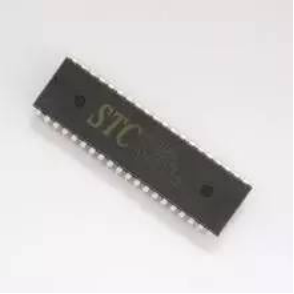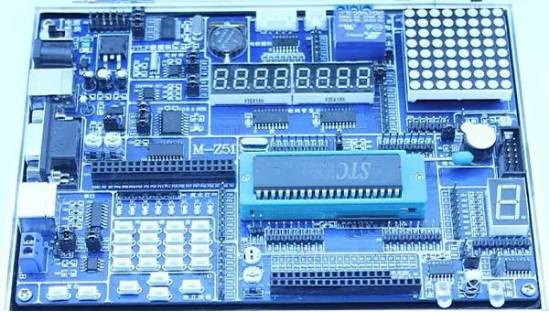The basic content that must be mastered by the MCU learner
First of all, talk about the overall view:
1. I never said that 51 is the foundation. If I say this, please also understand this sentence as the basis of the principle of microcomputer.
2, the operation of the 51 single-chip microcomputer is essentially the operation of the register, the same is true for other microcontrollers. The library is just an interface that is convenient for users to use.
3, assembly language is rarely used in the work, understanding is good.
The P0 port of 4,51 is very special.
5, C language is C language, 51 MCU is 51 MCU, the algorithm is the algorithm, the peripheral circuit is the peripheral circuit, the sensor is the sensor, the communication device is the communication device, the circuit diagram is the circuit diagram, the PCB diagram is the PCB diagram, the simulation is the simulation.
When you never use 51 again, the C language knowledge is still there, the knowledge of the algorithm is still there, the skills of the minimum system to build the microcontroller are still there, the use of sensors and communication devices is still there, but also the circuit diagram and PCB diagram Of course, it will simulate.
6,51 microcontroller is this:

Instead of this:

7, when the program debugging is not satisfactory, calm down to check the information, the biggest advantage of the 51 single-chip is the online information is very much, you have encountered problems that others have also encountered. As a learner, asking people may be more convenient, but it has always been that they have not been able to develop the ability to solve problems.
Then dry up:
First of all, let's take the position of 51, and read it with me again: 51 is just a tool 51 is just a tool 51 is just a tool. Of course, there is also a status 51 is a college student SCM tutorial. In other words: SCM is just a tool SCM is just a tool SCM is just a tool.
Then what is the basics: the principle of electromechanical microelectronics, and then skilled reading the data manual, you can try to do some modules or the smallest system to practice the hand, C language can actually be a tool, on the microcontroller, as a necessary condition is also counted as Basically.
Then we must start to understand our professional direction or the direction we are ready to develop. Then we have different professional bases in different directions. You need to use various sensors, control principles, theory, and algorithms to buy measurement modules. Do not call monitoring and control ah feed; you learn signal processing, you need the signal and system, digital signal processing, and then slowly contact DSP, FPGA / / signal processing is really not result = (AD + 0.5) / 4096 * 3.3 ah feed; If you want to do embedded development, slowly study the architecture of ARM, run some real-time systems or even high-end ARM running Linux development drivers or applications; if you want to do communication, every evening thanks to a good Shannon, this one looks very bitter , what communication principle code theory electromagnetic field blablabla......
In short 51 / microcontroller can achieve a lot of things, but this is not necessarily 51 important, but how do you use 51. Oh yeah, when you use more advanced chips, many of the underlying things can be neglected. Even many chip vendors will provide libraries for you. You can focus on your own algorithms rather than how to control the microcontroller. Of course, you'd better have a concept of how a chip works through registers and various logic circuits.
Also talk about the choice of your college extracurricular life. The first kind of robot lab or student led lab is suitable for playing the brush certificate. In the long term, your modular electric skill can have a lot of exercise, and even you can receive goods. Some patents, and the atmosphere between students is also good. The other way is to find a tutor to follow along with learning, helping, and doing projects. Although you may feel that the task assigned to you by the tutor may not be relevant to the MCU, you can learn different techniques in a certain field. Of course, the premise is that you want to like the direction of the tutor's research, the general hospital website has or go to the network to see the teacher published thesis.
Talk about my experience.
1. A student who does not have a foundation of C. He began to learn from Guo Tianxiang's video from a teacher's teacher, so I downloaded a full set of videos. When I first started watching, I was dizzy. It was okay to light up an LED light. I couldn’t afford to use the delay function of the second lesson. I could say that my stamina was poor and I didn’t insist. I can’t say I’m not persevering. I’m not really trying to learn. The person at the time, at the time, I didn't feel relieved. I only read 4 lessons. In fact, I didn't understand the program, so I stopped to learn. By the second semester of my sophomore year, I discovered that I had to learn some techniques, so I rewrote the old industry and the MCU in the semester. Then I began to look at the first lesson and found that what I didn't understand before was suddenly clear. When I wrote this experience, I wanted to say that if I stick to it and look at it several times without knowing it, if I don't know how to read it again, we will not waste half the time. Some knowledge theories rely on the accumulation of time. The first time they don't understand, the second time they don't understand, and the third time they may understand a bit, and one thing that is just starting to get started is a similar situation.
2. When I studied for one month, there was a game in the school. The team needed a person to engage in hardware. So I asked for hardware. Why? Because in the process of learning the SCM, he will only run the program, not even how to look at the schematic, microcontroller wiring I see the development board to provide information to pick up, it is dog blood. . . So I started to contact Altium Designer. This is my second semester software. It was to watch the video entry. I just started watching Guo Tianxiang's video. I found that I couldn't keep going. I was too tired. After reading a set of good pains, I searched and found a good teaching video. Also used is a relatively new version, called "learning while playing Altium Designer" opened by the four-person studio. I really thank the author for this open source spirit that has helped us very much for beginners. After studying with his video for a month, it will draw 51 minimal systems, basic wiring, but I think it is not enough (of course not enough, you only learned a month ...)
3, in the process of learning Altium Designer involves circuit analysis, that is, we are now learning the "electronic circuit basics", so love toss I began to bulge Multisim 12.0, which is a circuit simulation software. After studying with the teacher very slowly, but the teaching material is a little deeper, such as analysis of the amplification circuit, power supply, teaching materials, most of the listed formulas, for the zero-based learning friend is very hard, and the teacher is also driving ducks Style, speaking test content. It is recommended that you buy the second edition of the book "Zero-based Electronic Design." This book was accidentally discovered in the library, but it has since become obsessed with him. At the beginning, he will not introduce a lot of formulas, start teaching with an example, teach you step by step how to understand the components (here is useful for learning PCB), and then analyze from one step of the circuit diagram, and then analyze how the system, the book With Multisim simulation, teach you step by step to use the controls inside.
Write here to sum up:
For 1: The most important thing is to learn MCU
1. First understand the SCM, to understand the main components of the SCM and the definition and function of each pin; recommendation book "SCM principle and its interface technology" Hu Hancai (very familiar with it.. Oh, this is our university's SCM teaching material!! The classics are based on the basics!! People's textbooks do not change for decades. It makes sense that this kind of thing will not change where you go. There is no need to look specifically, to understand, to understand programming, Very helpful.)
2. Understand some SCM assembly knowledge to facilitate the follow-up debugging; this book "SCM principle and its interface technology" is to compile the compilation, kill two birds with one stone.
3. Master microcontroller interrupt mechanism;
4. Grasp the microcontroller timing and counters; (3 and 4 are the control of the microcontroller internal registers, to master. Those external expansion functions are mostly based on these internal controls)
5 master microcontroller serial communication.
The above is the basic content that must be mastered for those who want to learn SCM.
For 2, 3:2, 3 can be said together, this is part of the hardware. Altium Designer main principles library design, PCB library design, wiring. A friend who hasn’t started watching the video does not require anything to be drawn, at least it will use the library of others and transplant the library of others to use it, so that the software can be quickly started. Later, I gradually improved my unfamiliar place. This has always been a headache for me. It was the packaging problem. At the time, I didn't even understand what the package was. I only watched the video and checked the data before I gradually realized it.
Armor With Kickstand Cell Phone Case
Armor With Kickstand Cell Phone Case,Armor Kickstand Cell Phone Case,Kickstand Cell Phone Case Armor,Kickstand Cell Phone Case
Guangzhou Jiaqi International Trade Co., Ltd , https://www.make-case.com